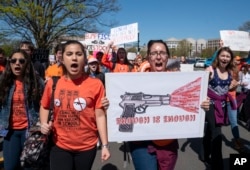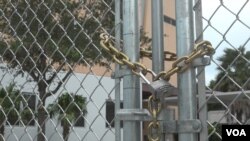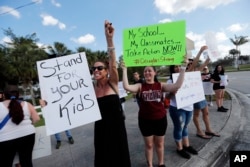Student Union
- By Esha Sarai
Parkland Pushes Back Against Arming Teachers

Parents, teachers and students are pushing back on a report released recently in Parkland, Florida — the site of a mass shooting at a high school last February — that recommends arming teachers to secure schools.
“I don’t agree we should arm teachers,” said Lori Alhadeff, whose 16-year-old daughter, Alyssa, was shot and killed at Marjory Stoneman Douglas High School.
“We need to train our law enforcement to actively engage a threat! Our teachers should be armed with more resources and pay but definitely not guns!” Alhadeff, who now serves on Broward County’s school board, wrote in an email to VOA.
The shooter, a 20-year-old recent graduate of the high school, killed 17 people with a semiautomatic AR-15 rifle. While the massacre drew national attention to the larger question of gun control in the United States, it also prompted a months-long local investigation and subsequent report into how the shooter was able to perpetrate the mass shooting, and how similar events may be prevented in the future.
The Marjory Stoneman Douglas High School Public Safety Commission released a more than 400-page report covering details of the shooting, identifying security problems and making recommendations.
Among the recommendations was the expansion of a program that allows teachers and staff members to carry concealed firearms to defend students in the event of an active shooter.
"School districts and charter schools should permit the most expansive use of the Guardian Program under existing law to allow personnel — who volunteer, are properly selected, thoroughly screened and extensively trained — to carry concealed firearms on campuses for self-protection and the protection of other staff and students," the report read.
Alhadeff was not the only parent of one of the 16 students killed last year who disagreed with the recommendation to arm teachers. Max Schachter, one of two parents of victims on the commission board, voted against the recommendation to arm teachers, the Sun-Sentinel reported.
‘Absolutely not’
But the commission, which included sheriffs and state politicians, as well as two parents of the shooting victims, did not consult with any of Marjory Stoneman Douglas’s teachers.
“They’re not in the school. So, they’re making recommendations on how to make the school safe, make our kids safer going forward. But they didn’t ask any teachers, who are in the school, who would have a better idea of what’s practical,” Felicia Burgin, an English teacher, told VOA.
When asked if she agreed with the recommendation to arm teachers, Burgin said, “Absolutely not.”
Burgin and fellow teacher Sarah Lerner agree with Alhadeff’s suggestion that increasing the number of security personnel on campus is a more reasonable solution than arming teachers.
“To have a firearm at school — it just seems counterproductive. I’m here to teach, I’m not a police officer,” Lerner, who teaches journalism and English, told VOA.
Along with concerns about where the funding would come to arm and train teachers, Lerner, who was teaching on campus in a different building than where the shooting took place, does not think that being armed would have helped her.
“By the time I would have accessed my weapon, which would have been secured safely in a closet, I would have been dead,” she said.
Concerns about objectivity
A few days after the report was released, the leader of the commission, Sheriff Bob Gualtieri, appeared on a television show of the National Rifle Association (NRA) — sparking outrage by some in the community who say that his appearance on a network that advocates for gun rights threatens the objectivity of the commission.
“Everyone should be disturbed by the leader of the School Safety Commission (which opened following the shooting at the high school) going on NRA TV,” David Hogg, a survivor of the Feb. 14 shooting, said on Twitter. “This is supposed to be a nonpartisan commission that looks at safety; it’s (sic) goal is supposed to be protecting students, not selling more guns.”
“There’s no reason for them to be involved or to be on NRA TV at all if they’re members of this nonpartisan committee,” Lerner said.
The existing Guardian Program, signed into law by outgoing Republican Gov. Rick Scott shortly after the shooting last year, only allows administrators or non-teaching staff to receive firearm training.
In April 2018, the Broward County School Board voted against adopting the program, which would have given Broward County schools over $67 million to train and arm teachers, according to The Eagle Eye, Marjory Stoneman Douglas High School's newspaper.
Sheriff suspended
The report was released earlier this month and also recommended a full internal investigation of the Broward County sheriff's office, which responded first to the shooting, to "address all of the actions or inactions of personnel on February 14, 2018.”
Broward County Sheriff Scott Israel was suspended over the weekend by newly inaugurated Florida Gov. Ron DeSantis.
“Effective immediately, I am officially suspending Broward County Sheriff Scott Israel for his repeated failures, incompetence and neglect of duty,” DeSantis wrote on Twitter Friday.
Israel has said he will contest his suspension, calling the move political and unjustified.
“This was about politics, not about Parkland,” he told reporters shortly after the suspension was announced Friday.
The commission first met in April 2018, setting January 2019 as the deadline to submit a preliminary report. During the second half of 2018, the commission held monthly meetings interviewing witnesses and reviewing "a massive amount of evidence," according to the report.
The commission was formed by Scott, who has since become a U.S. senator for the state.
See all News Updates of the Day
Universities in Middle East building research relationships with China

As China bolsters research relationships with universities in the Middle East, the United States has taken notice – especially when that research involves artificial intelligence.
Reporting for University World News, Yojana Sharma has the story. (March 2024)
Tips for staying safe while studying in the US
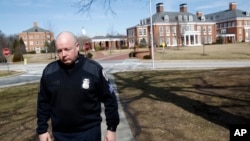
Recent news events have raised safety concerns among some international students studying in the United States.
Adarsh Khandelwal, writing in the India Times, has tips for staying safe from the moment you arrive until the day you complete your studies. (March 2024)
Some colleges are making digital literacy classes mandatory

A 2019 study by Stanford found that most college students can’t tell the difference between real and fake news articles. Amid rampant online disinformation, and the threat of AI-generated images, some schools are making students learn “digital literacy” to graduate.
Lauren Coffeey reports for Inside Higher Ed. (March 2024)
With federal student aid delays, students aren’t sure what college will cost
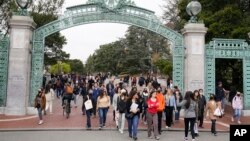
The U.S. Department of Education’s federal student aid form (FAFSA) experienced serious glitches and delays this year.
Now, many students have been admitted to college, but don’t know how much money they’ll need to attend.
Read the story from Susan Svrluga and Danielle Douglas-Gabriel for The Washington Post. (March 2024)
Senator draws attention to universities that haven’t returned remains
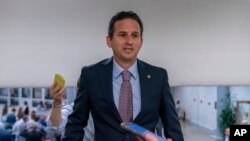
More than 70 U.S. universities continue to hold human remains taken from Native American burial sites, although those remains were supposed to be returned 30 years ago.
Jennifer Bendery writes in Huffington Post that one senator has been using his position in an attempt to shame universities into returning remains and artifacts. (April 2024)




